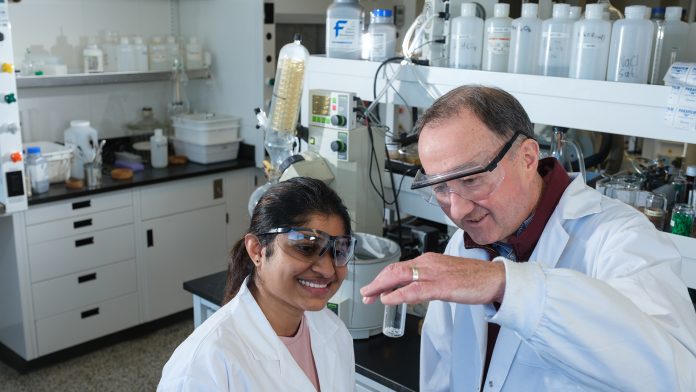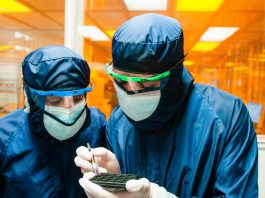The Université de Sherbrooke, a top-ten Canadian research university, is poised to revolutionise organic synthesis, energy utilisation and medicine with crystal engineering.
From quantum science to crystal engineering, the Université de Sherbrooke has distinguished itself with cutting-edge technology and equipment, internationally recognised researchers, a culture of partnerships, and an interdisciplinary vision across emerging areas with significant impacts for society.
Professor Leonard MacGillivray, the university’s newest recruit, is leading the Canada Excellence Research Chair (CERC) in Crystal Engineering for Green Chemistry and Sustainable Materials.
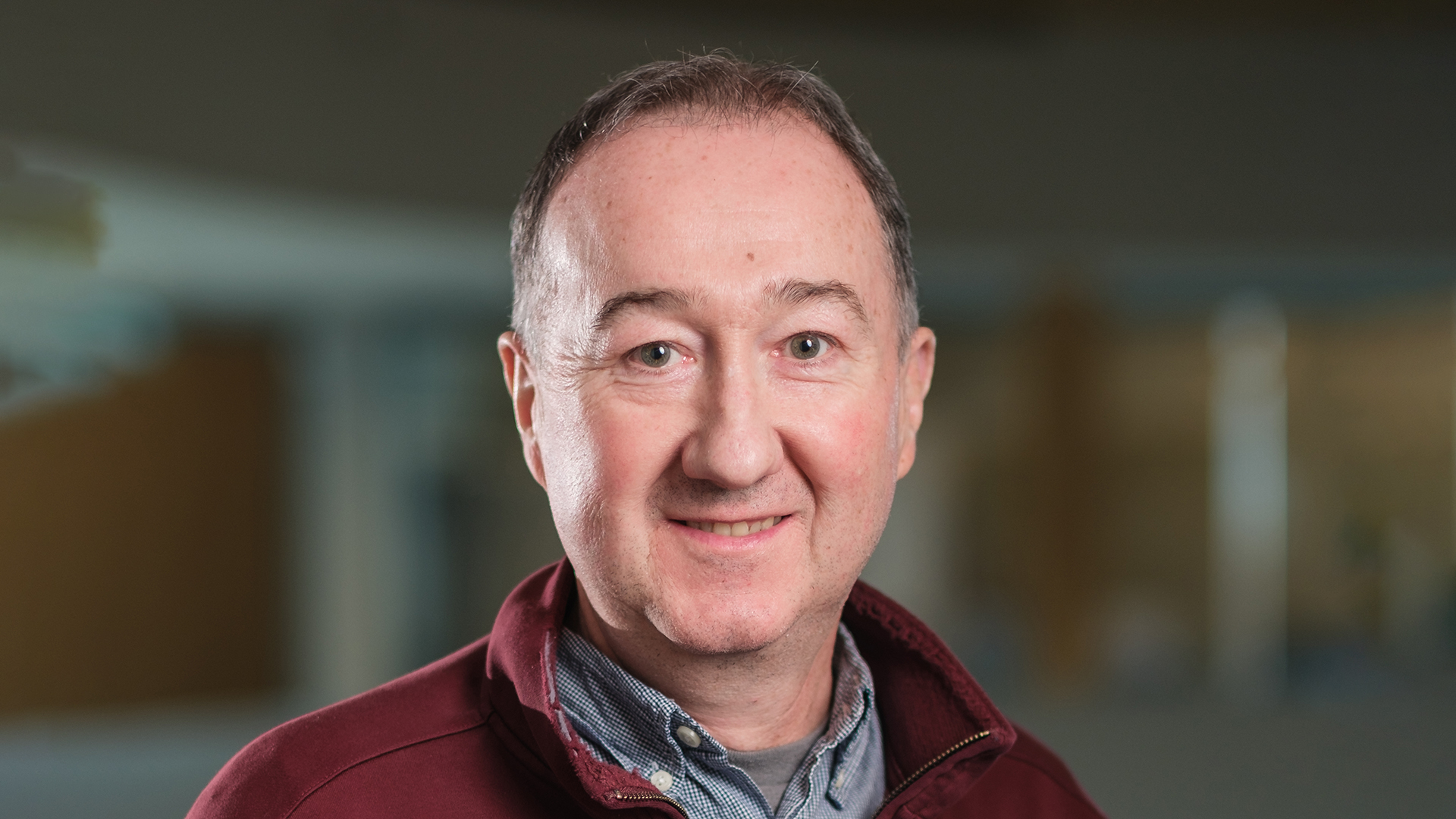
He is applying his expertise in the field of crystal engineering, an emerging branch of chemistry that has implications in connected areas such as green chemistry, pharmaceutical chemistry, and materials sciences.
The role of crystal engineering
Crystal engineering allows scientists to tailor the properties of molecular solids by gaining control of the three-dimensional arrangement that atoms and molecules adopt in space with atomic precision. This field of knowledge can equip scientists with powerful tools to help sustain and support our planet.
The Canada Excellence Research Chair in Crystal Engineering for Green Chemistry and Sustainable Materials is focused on developing organic crystalline solids thanks to green chemical laboratories, mediums for future organic semiconductors and solar energy storage, and materials to enhance the properties of active pharmaceutical ingredients and medicines.
The CERC programme has the potential to achieve transformative, lasting impacts in vital sectors, including chemical manufacturing, electronics, energy use and pharmaceutical industries.
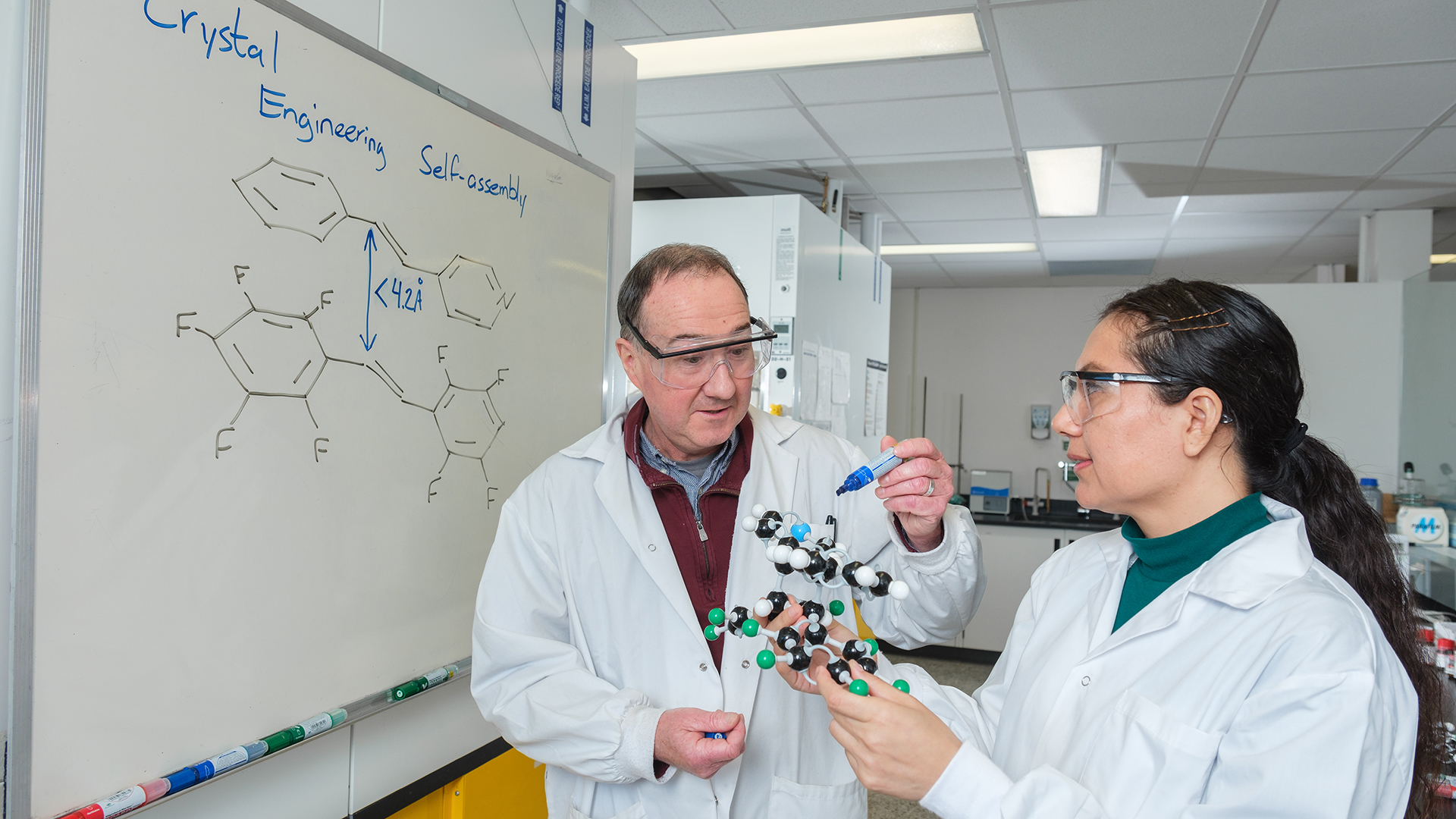
Solar energy storage, pharmacology and organic semiconductors
Professor MacGillivray’s research will attempt to predict the properties of molecules in the solid state before they crystallise and then modify certain characteristics, such as solubility, bioavailability, porosity, and catalytic qualities, with a view to commercial applications in the technologies of tomorrow. MacGillivray explained: “Crystal engineering is a vital sector with enormous potential for implementation and commercialisation.”
The Chair’s initiatives also help ensure the future competitiveness of existing and newly emerging industries.
Professor MacGillivray additionally works in engineering, leveraging the principles of crystalline engineering to develop new devices. For example, one CERC project focuses on the molecular storage of solar thermal energy. He said: “Imagine portable stored solar energy that can then be converted to heat.”
The CERC’s work will contribute to developing concrete solutions for urban energy systems, thereby increasing overall energy and resource efficiency and creating a more sustainable and competitive energy supply thanks to new renewable energy solutions.
In collaboration with the Pharmacology Institute of Sherbrooke, one of the six research institutes at the Université de Sherbrooke, Professor MacGillivray is also investigating pharmaceutical cocrystals—an innovative approach to creating new medicines. MacGillivray noted: “Each molecule being developed as a drug could be converted to pharmaceutical cocrystal, which will translate into the birth of start-up companies and many exciting prospects.”
This kind of innovation will address health-related challenges by advancing knowledge, improving our understanding, and developing innovative technologies and solutions to better manage health.
The researcher and his teams are also studying the development of organic semiconductors, which may lead to flexible materials. In this application, crystalline engineering will be developed as a multifaceted approach to stimulate innovation in green chemistry and sustainable materials research. Potential applications include electronic paper and smart clothing.
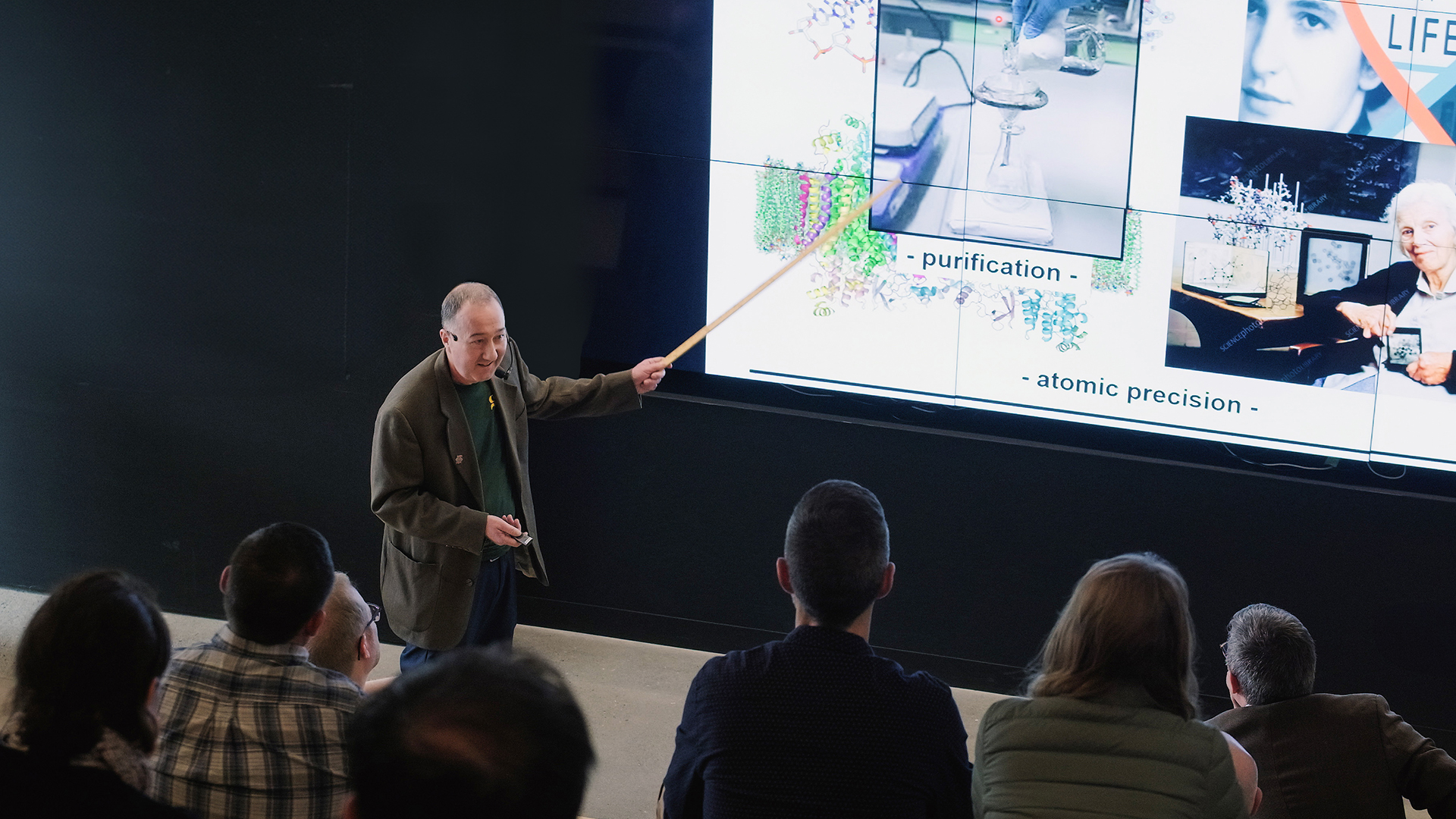
According to Université de Sherbrooke President, Pierre Cossette, bleeding-edge research such as that of Professor MacGillivray underscores the university’s commitment to research that meets the needs of society. Cossette said: “At UdeS, we believe that taking a multi-disciplinary approach to discoveries and innovations in sustainability-related areas is critical to identifying and scaling solutions. International partnerships such as those Dr MacGillivary brings to UdeS are sure to catalyse deeper collaborative ventures within UdeS but also nationally and internationally.”
World-class expertise in green chemistry
A world-renowned expert in the emerging field of green chemistry, Professor Leonard MacGillivray chose the Université de Sherbrooke for its dynamic research environment focused on interdisciplinary collaboration.
His desire to return to Canada, his native country, was not the only factor that led Professor MacGillivray to choose UdeS. His decision was based on the university’s state-of-the-art research facilities and impressive spirit of collaboration.
The many UdeS research institutes, such as the Pharmacology Institute of Sherbrooke, the Interdisciplinarity Institute for Technological Innovation, and the Institut Quantique, that can help shape research in crystal engineering for years to come convinced Professor MacGillivray that this university, with its stimulating research environment and international collaborations, was the place for him.
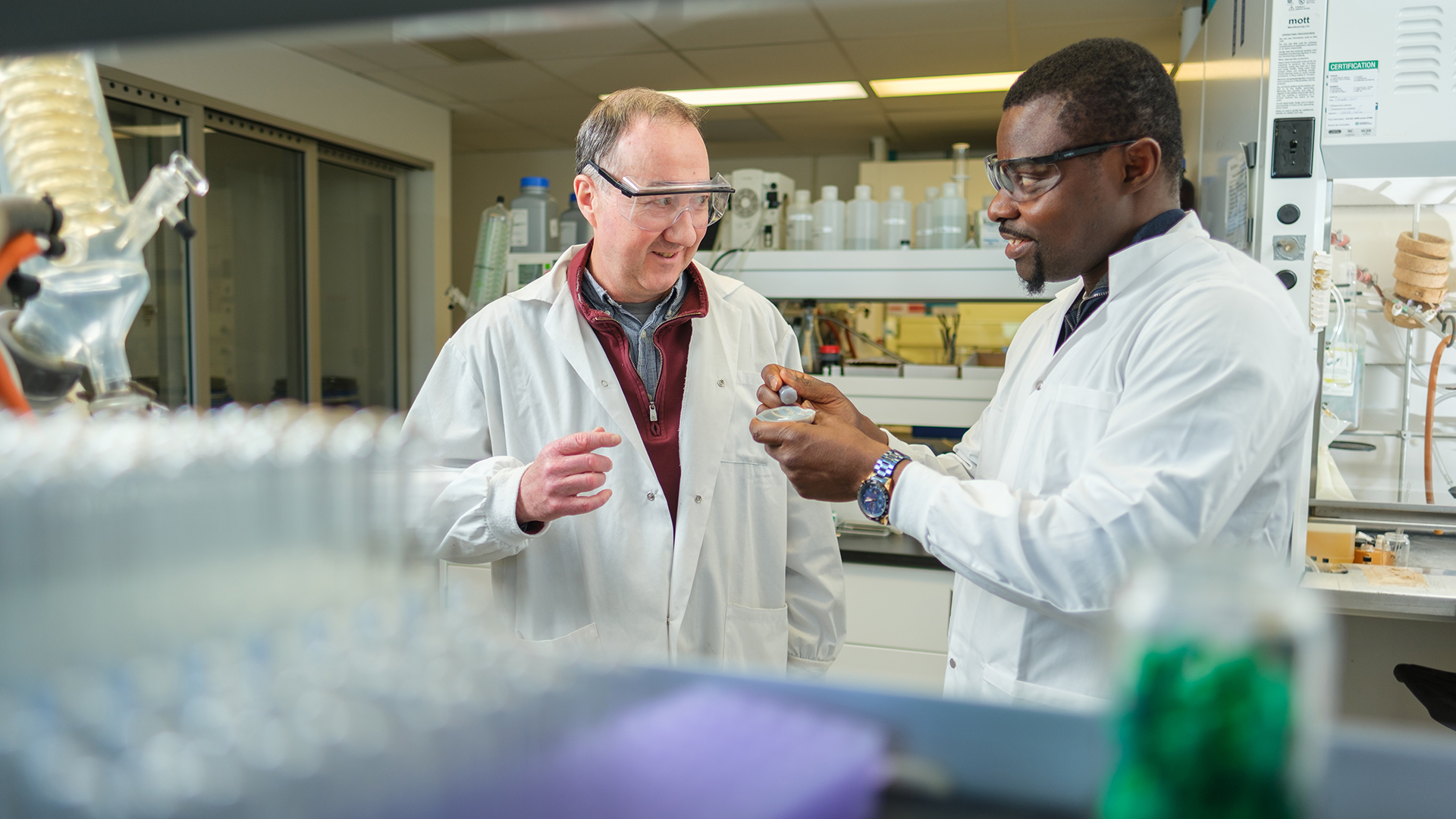
Professor MacGillivray said: “Having the CERC is quite extraordinary, really. I have an opportunity to work in an area that I’ve been focusing on my entire career and, at the same time, on projects that were difficult to dream of pursuing. The CERC funding and the personnel at the Université de Sherbrooke provide an outstanding opportunity to do just that.”
Vice-President of Research and Graduate Studies Jean-Pierre Perreault is also very pleased to welcome such a world-renowned chemist and researcher. He said: “Recruiting Professor MacGillivray reaffirms our outstanding status, not only across Canada but also around the world, in the field of crystal engineering. A whole generation of young researchers will benefit from the extraordinary environment created by Professor MacGillivray’s CERC.”
Canada’s Top 50 Research Universities report, published annually by Research Infosource¹, showed the Université de Sherbrooke leaping from 15th place to tenth place in 2023 in research intensity – a success attributable in part to its talented community of researchers, such as Professor MacGillivray, who continue to join its ranks, ushering in a spirit of partnership as they work in the laboratory and beyond to create a perfect blend of innovation, collaboration and technological development.
For more information or to discuss partnering with our innovative university, please contact
research@usherbrooke.ca.
References
Please note, this article will also appear in the 18th edition of our quarterly publication.

